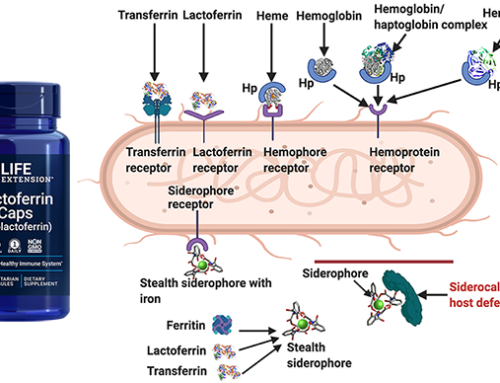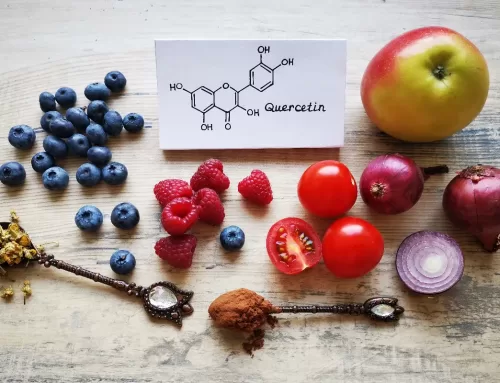The human digestive system is extremely complex, and one major component of this system involves the coordination of many microorganisms, often referred to as the gut microbiome, and their metabolites. In humans, these metabolites can either promote or suppress the overall health of an individual in a myriad of ways.
According to Baghel et al. “Metabolites can be defined as endogenous compounds such as amino acids, lipids, sugars, organic acids, etc., which are routinely being formed in the anabolism or catabolism process” (Baghel et al., 2021). Many of these metabolites are made from the various microorganisms that reside in our digestive tract, also known as the gut microbiome. These metabolites have a direct influence on your health by acting as messengers of information between the gut microbiome and our own cells. The “resulting metabolites thus impact [our] development, health, and [disease state]” (Sittipo et al., 2019). Scientists are just beginning to understand the complexity of the gut microbiome and how it varies from individual to individual. Since each person’s gut microbiome differs greatly a better way to understand the gut is by testing metabolites rather than calculating or tracking the actual microorganisms. The company I am working with, Ixcela Wellness, does exactly that. They perform metabolite testing via a do-it-yourself-in-home finger stick blood test. Currently, they test for 11 metabolites, and each metabolite informs me as to what bacteria are thriving and what can be done to either increase or decrease the number of microorganisms that reside in your gut. The metabolite score, which I receive from the Ixcela metabolite test, also informs me about what you can do to improve your health in terms of supplement choices, foods, lifestyle habits, and exercise. As a health coach that utilizes Ixcela’s blood metabolite tests, I offer you the support you need to improve the balance of your gut microbiome. By improving your gut microbiome you are able to attain your health and fitness goals in a more efficient manner while also improving your overall well-being.
Why Would My Gut Microbiome Be Unbalanced?
In the modern world gut dysbiosis, or an unbalanced gut microbiome, is very common and it affects people’s health in different ways. In extreme cases, that start from birth, gut dysbiosis has been linked to autism (De Angelis M et al., 2013) and mental illness (Argou-Cardozo & Zeidán-Chuliá, 2018), whereas in others it’s been linked to Crohn’s disease, autoimmune disorders, IBS, and weight gain (Nishida et al., 2018). As you can surmise, the effects of gut dysbiosis can be very serious and life-altering. As someone that suffers from IBS myself, I can relate very well and take my gut health seriously. In fact, that’s why I became educated about this science in the first place. Many factors can alter your gut microbiome but here is a list of the most common causes:
- Having too much of one type of food i.e. too much sugar leads to an overgrowth of bacteria that promotes inflammation (Satokari, 2020).
- Eating foods that are laden with pesticides i.e pesticides have been shown to alter the gut microbiome dramatically (Shaw, 2017)
- Not eating enough fiber or not eating a wide variety of fibers
- Exercising too much, too often, or too intensely
- Not working out enough
- Lack of sleep
- Too much mental stress
- Too much protein
- Not enough protein
- Consuming too many sugar substitutes (Shil & Chichger, 2021).
It’s a long list and it is difficult to know which habits benefit or harm your health. That’s why having your metabolites tested at the beginning and at the end of my gut health improvement programs are a great way to improve your well-being. Whether you are looking to improve IBS symptoms, lose weight, get lean, or build muscle having the Ixcela metabolite test is the most efficient way to speed up your results while improving your overall health. Want to learn more about the metabolite tests? Watch the video below and go to my website here. Be sure to use code PoshFitness for an extremely discounted offering and to make me your health coach!
References
Argou-Cardozo, I., & Zeidán-Chuliá, F. (2018). Clostridium Bacteria and Autism Spectrum Conditions: A Systematic Review and Hypothetical Contribution of Environmental Glyphosate Levels. Medical Sciences, 6(2), 29. doi:10.3390/medsci6020029
Baghel, Ruchi, Kiran Maan, Teena Haritwal, and Poonam Rana. “Integration of Epigenomics and Metabolomics: From Biomarkers Discovery to Personalized Medicine.” Epigenetics and Metabolomics. Academic Press, August 27, 2021. https://www.sciencedirect.com/science/article/pii/B9780323856522000026.
Clemente, J. C., Ursell, L. K., Parfrey, L. W., & Knight, R. (2012). The impact of the gut microbiota on human health: an integrative view. Cell, 148(6), 1258–1270. doi:10.1016/j.cell.2012.01.035
De Angelis M, Piccolo M, Vannini L, Siragusa S, De Giacomo A, Serrazzanetti DI, et al. (2013) Fecal Microbiota and Metabolome of Children with Autism and Pervasive Developmental Disorder Not Otherwise Specified. PLoS ONE 8(10): e76993. https://doi.org/10.1371/journal.pone.0076993
Nishida, A., Inoue, R., Inatomi, O., Bamba, S., Naito, Y., & Andoh, A. (2018). Gut microbiota in the pathogenesis of inflammatory bowel disease. Clinical Journal of Gastroenterology, 11(1), 1–10. https://doi.org/10.1007/s12328-017-0813-5
Satokari R. (2020). High Intake of Sugar and the Balance between Pro- and Anti-Inflammatory Gut Bacteria. Nutrients, 12(5), 1348. https://doi.org/10.3390/nu12051348
Shaw, W. (2017). Elevated Urinary Glyphosate and Clostridia Metabolites With Altered Dopamine Metabolism in Triplets With Autistic Spectrum Disorder or Suspected Seizure Disorder: A Case Study. Integr Med (Encinitas) 16(1).
Shil, A., & Chichger, H. (2021). Artificial Sweeteners Negatively Regulate Pathogenic Characteristics of Two Model Gut Bacteria, E. coli and E. faecalis. International Journal of Molecular Sciences 2021, Vol. 22, Page 5228, 22(10), 5228. https://doi.org/10.3390/IJMS22105228
Sittipo, P., Shim, J. W., & Lee, Y. K. (2019). Microbial Metabolites Determine Host Health and the Status of Some Diseases. International Journal of Molecular Sciences 2019, Vol. 20, Page 5296, 20(21), 5296. https://doi.org/10.3390/IJMS20215296







